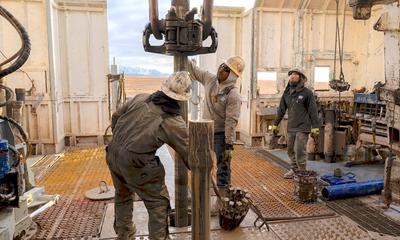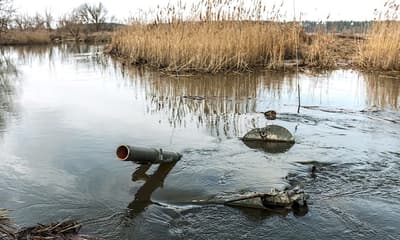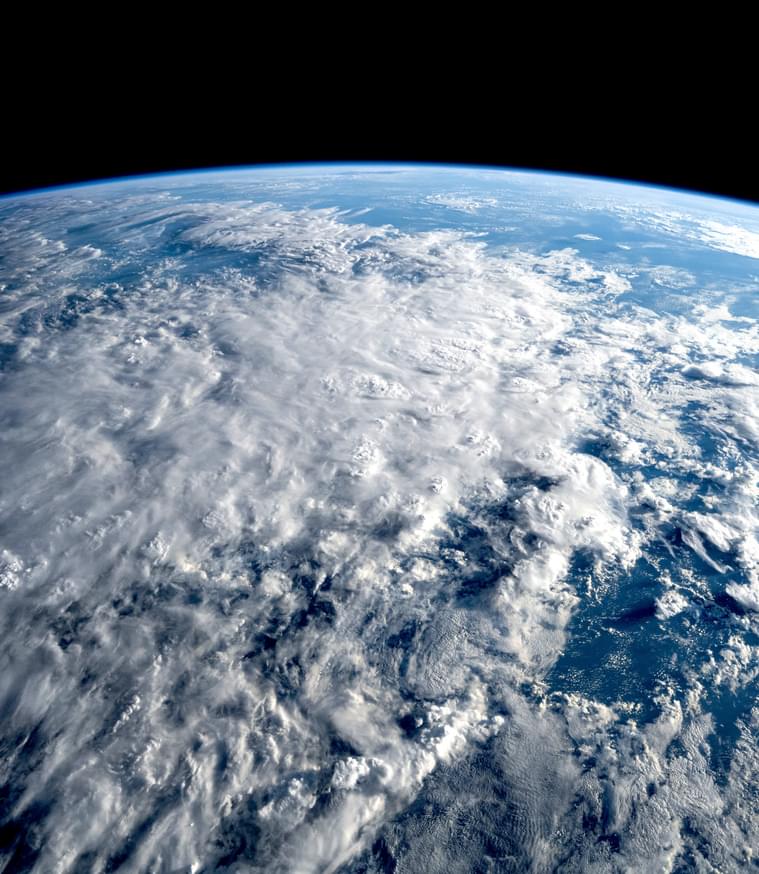
The Trump administration is outwardly hostile to clean energy sourced from solar and wind. But thanks to close ties to the fossil fuel industry and new technological breakthroughs, U.S. geothermal power may survive the GOP assaults on support for renewables and even thrive.
-
Food & Agriculture
In War Zones, a Race to Save Key Seeds Needed to Feed the World
In conflict areas from Ukraine to Palestine, storage facilities holding seeds vital for future plant breeding are being lost. Scientists are rushing to send some remaining seeds to a “doomsday” vault in Norway so they can be available to provide food crops in a warming world.
-
Climate
Lightning Strikes the Arctic: What Will It Mean for the Far North?
A warmer world is expected to bring more thunderstorms, especially at higher latitudes. Scientists are now reporting a dramatic surge in lightning in the Far North and are scrambling to parse how this could affect wildfires, the chemistry of the atmosphere, and Arctic ecosystems.
-
RIVERS
A Win for Farmers and Tribes Brings New Hope to the Klamath
In the long-contentious Klamath River watershed, an experiment that turned a barley field into a wetland not only improved water quality. It also offered a path forward for restoring populations of two endangered fish species that are of cultural importance to Native tribes.
Solutions
Deconstructing Buildings: The Quest for New Life for Old Wood
A growing number of cities have launched initiatives to reuse the wood waste from construction and demolition that now ends up in landfills. The challenge, proponents say, is to deploy new techniques for disassembling old buildings and markets for repurposing the salvaged wood.
E360 Digest
-
Meta Said A.I. Could Help Tackle Warming. An Early Experiment Underwhelmed
Last year Meta identified 135 materials that could potentially be used to draw down carbon dioxide, work it described as "groundbreaking." But when scientists tried to reproduce the results, they found that none of the materials could perform as promised and that some did not even exist. More about Meta Said A.I. Could Help Tackle Warming. An Early Experiment Underwhelmed →
-
A Decade After a Lead Crisis, Flint Has At Last Replaced Its Pipes
A decade after Flint, Michigan, was beset by widespread lead contamination, officials confirmed the city has replaced its lead pipes, as ordered by a federal court. More about A Decade After a Lead Crisis, Flint Has At Last Replaced Its Pipes →
-
London Inches Closer to Running Transit System Entirely on Renewable Power
Under a new agreement, London will source enough solar power to run its light railway and tram networks entirely on renewable energy. More about London Inches Closer to Running Transit System Entirely on Renewable Power →
Never miss an article. Subscribe to the E360 Newsletter for weekly updates delivered to your inbox. Sign Up.

NATURAL DEFENSES
How Restored Wetlands Can Protect Europe from Russian Invasion
The flooding of Ukraine’s Irpin valley thwarted Russia’s assault on Kyiv in 2022. Now, scientists are proposing Europe create a band of restored and protected wetlands along its eastern borders to deter future Russian aggression, and military strategists are taking notice.
-
Solutions
Birds vs. Wind Turbines: New Research Aims to Prevent Deaths
Window collisions and cats kill more birds than wind farms do, but ornithologists say turbine impacts must be taken seriously. Scientists are testing a range of technologies to reduce bird strikes — from painting stripes to using artificial intelligence — to keep birds safe.
-
OPINION
The ‘Green’ Aviation Fuel That Would Increase Carbon Emissions
The U.S. agriculture lobby has long promoted ethanol for cars. If President Trump’s “Big Beautiful Bill” becomes law, the industry would be given tax credits for producing crop-based fuel for planes, too, despite evidence it would spur deforestation and increase emissions.
-
CONSERVATION
Out of the Wild: How A.I. Is Transforming Conservation Science
Artificial intelligence is being called a game changer for enabling scientists and conservationists to process vast troves of data collected remotely. But some warn its use could keep biologists from getting out in the field with the animals and ecosystems they are studying.

